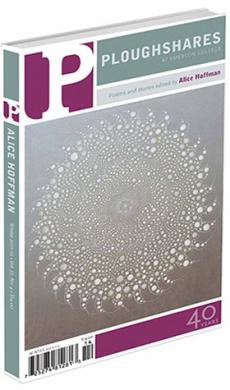Review: How Like Foreign Objects
At 113 pages, How Like Foreign Objects is an ambitious and meaty first book, filled with poetry that is succinct and captivating. It is easy to be hooked by Orgera’s quick wit and deceptively straightforward syntax. Especially, as in “Sleeping with the Dictionary,” when she presents lines that offer immediate pleasure while pointing to a deft handling of complex subjects: “I tell you what, it’s never the definition / that makes its home in your underwear. // Nine times a man rides up to the house. / Nine times he’s turned into a troll // for being obscure.” Orgera isn’t afraid to be a little enigmatic most of the time, but she is never so challenging as to be uninviting.
How Like Foreign Objects is delightfully hard to categorize. It often seems to be a study in contradictions. Simultaneously funny and somber, direct and obscure, this collection contains many surprises. Orgera is somewhere between Dean Young and Jennifer Knox in temperament and style, combining Young’s playfulness with Knox’s sardonic irreverence. While not nearly as vulgar as Knox, for which some may find her a bit more palatable, little seems to be above or below Orgera’s scrutiny, and even less is so taboo that she would be unwilling to incorporate it. Thus, the navel features prominently in “Retrospective” and a couple’s approach to oral sex illuminates the failure of their relationship in “Falling.”
Orgera revels in creating spaces where the comic and the sinister intermingle, exposing and emphasizing each other. In “Unlike Many Land Mammals,” Orgera even comments on this urge, implicitly
acknowledging that, if the strategy occasionally seems debasing, it still cannot be dismissed, for it emerges from a need to take all language seriously: “Until one day you began dying, / you were the bug of my life. To continue / this metaphor would be profane, / but remember that bug sounds like love.” It is precisely this intermingling that makes How Like Foreign Objects provocative and charming.
While often funny, Orgera does not rely solely on irony and sarcasm to generate meaning. More often than not, the humor that pervades this work stems from Orgera’s capacity, as the title promises, to look at the familiar as though it is foreign. Thus, the book’s titular poem—an imagined discussion between an absurdly estranged couple—ends, “He sees how her questions / are really only the outlines of questions. / How gravity is what solders them glass / to glass to glass like the windows in church.”
How Like Foreign Objects is an impressive first book by a promising poet. One hopes that it is only the beginning of a rich and prolific career. Orgera fearlessly heeds Ezra Pound’s call to “make it new.” As some, including Dana Levin, have pointed out, Pound’s imperative has led too many young poets to embrace a façade of originality while failing to generate anything of substance. Orgera’s willingness to pursue the new, however, has enabled her to generate poetry that is profound, engaging, and sincere.
Linwood Rumney’s poems and reviews have appeared in Cold Mountain Review, Cerise Press, and Potomac Review, among other publications. He teaches writing in Boston, where he is completing his first poetry collection.

